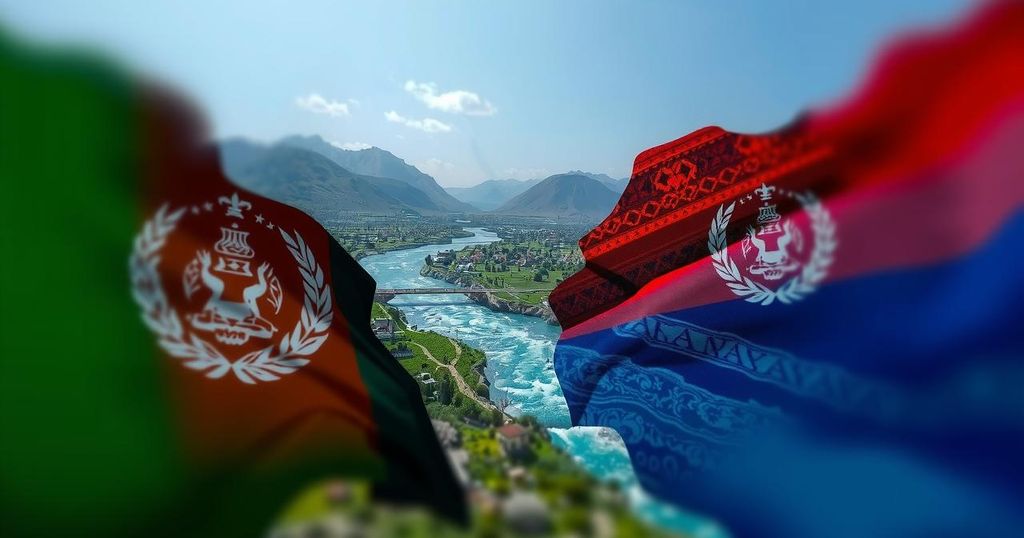Uzbekistan’s Envoy Affirms Afghanistan’s Water Rights from Amu Darya River

Uzbekistan’s envoy confirms Afghanistan’s right to utilize the Amu Darya River, highlighting the need to discuss equitable water usage between the two countries. The Qosh Tepa Canal project aims to direct water into Afghanistan but raises concerns about regional water balance. Additionally, Afghanistan is enhancing international connections through new airline agreements.
Uzbekistan’s special representative for Afghanistan, Ismatullah Irgashev, affirmed the right of the Afghan people to utilize water from the Amu Darya River, but raised the issue of water allocation between the two countries. Irgashev noted that a collaborative effort has been established, involving a joint commission to discuss the construction of the Qosh Tepa Canal in Afghanistan, which he described as essential for managing shared water resources. He emphasized the need to determine how much water each country will use, especially given concerns about the river’s diminishing flow. The Qosh Tepa Canal project, stretching 285 kilometers with a width of 100 meters and a depth of 8.5 meters, aims to divert up to 10 cubic kilometers of water annually, representing roughly 20% of the river’s total volume. Uzbekistan expresses apprehensions that this canal could significantly alter the water dynamics within Central Asia. However, representatives from Afghanistan’s Islamic Emirate assert that Uzbekistan’s water interests will not be adversely affected by the canal’s construction. In addition to this water management discussion, Afghanistan has initiated greater international air connectivity, enhancing regional ties and economic prospects. An Iranian airline commenced flights to Kabul, and a Memorandum of Understanding was signed between Afghanistan and Qatar to boost air traffic rights between the two nations, highlighting Afghanistan’s move towards re-establishing its presence in international airspace.
The Amu Darya River is a critical water resource for both Uzbekistan and Afghanistan, serving as a boundary and a lifeline for agriculture and settlements in the region. The river has faced challenges due to increasing demands from both countries, and its water levels have been exacerbated by climate change and upstream usage. The Qosh Tepa Canal project is significant as it represents an effort by Afghanistan to manage its water resources, but it raises international concerns regarding equitable water distribution and the potential impact on regional economies and environments. The dialogue between Afghanistan and Uzbekistan is critical in fostering cooperation in managing shared water resources.
Uzbekistan acknowledges Afghanistan’s entitlement to use the Amu Darya’s water while stressing the importance of equitable distribution. The Qosh Tepa Canal, while aimed at enhancing Afghanistan’s irrigation capabilities, raises concerns for Uzbekistan regarding water balance in Central Asia. This adds a layer of complexity to the regional dialogue on water management. Efforts to bolster air traffic and international relations signify a broader trend of Afghanistan re-engaging with its neighbors amidst a challenging geopolitical landscape.
Original Source: www.ariananews.af








